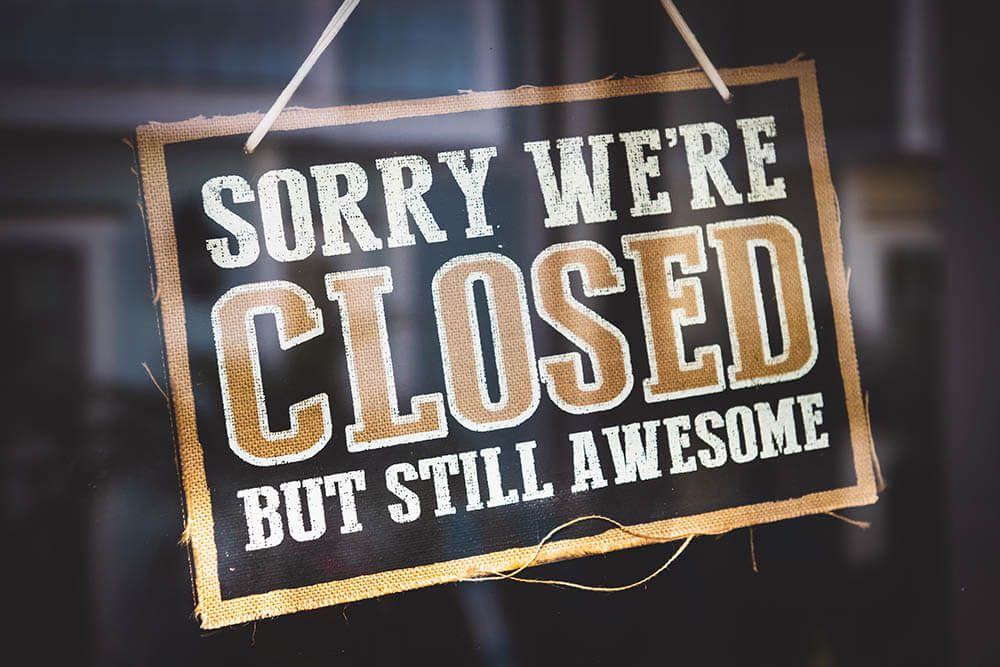The coronavirus is currently shutting down not only public life but also various sectors of the economy. Particularly affected is the stationary trade. Many stationary businesses are closed. In online trade, the warehouse is divided into at least two parts.
On the one hand, there are sellers who are profiting greatly. These include sellers who offer products of the following categories, for example:
- Fitness equipment for home use (such as yoga mats)
- Furnishings or materials for the home office
- Things of daily use (drugstore items, toilet paper, household items, ...)
- Food
- ...
For some sellers in these sectors, sales have multiplied in the last few days or weeks. This is partly due to the fact that many consumers are currently spending time at home and want to make good use of this time or (must) now work from home.
These sellers usually have a luxury problem. They have to cope with the increased demand. Particularly when these sellers offer their products by mail order, this often presents a challenge. Even without Coronavirus, the changeover from 500 to 3,000 packages a day is a real task. But especially when employees are absent or cannot work together as usual, it becomes doubly difficult.
Amazon, too, is not making things easy for successful sellers. This applies, for example, to sellers who currently offer breathing masks. These items are often - sometimes wrongly - blocked. As a result, sales are currently sinking to zero. And even sellers who rely on the Amazon FBA program are having a hard time. Even Amazon is faced with logistical challenges of a special kind, so Amazon has blocked the delivery of new goods for products that currently do not belong to the categories "daily necessities" or "medicine" or similar. This particularly affects the sellers, who generate a large part of their turnover through the Amazon logistics network.
If these sellers cannot switch to their own shipping method, they have practically no possibility to sell more than the remaining stock. Sellers who are already actively involved in their own shipment or who work with a fulfillment service provider are lucky. However, fulfillment service providers also have a hard time as the number of difficulties increases.
But even within self-shipment there are some challenges that need to be tackled. For instance, IT systems have to be adapted within a short time to ensure that orders are transferred correctly. Another prerequisite is, of course, that new offers of the same products with the shipping type "own shipping" or "FBM" are created quickly.
How is Amazon reacting?
It is to be expected that many sellers, who are now looking for their own shipping solution, will make mistakes here. Amazon has strict requirements regarding delivery time and delivery quality. And after all, they are not solely responsible for the supply chain. Parcel service providers are also currently struggling with staff shortages and the increasing volume in the parcels business. So even if the seller is doing everything right, it is still possible that the parcel will reach the customer later than expected. This means that sellers who currently offer their own shipping services are well-advised to build in buffers for preparation time and delivery. The disadvantage of this is that the delivery guarantee given on the Amazon product details page does not make it any more attractive. Even during times of Corona, the customer would still prefer to receive his package the next day or maybe the day after that. But not after a week.
We expect that Amazon will loosen the monitoring of performance indicators here as well. Sellers who now fail to keep their delivery promise, for instance due to a mistake by a parcel service provider, should not be penalized for this due to the unusual situation. But in the end, Amazon will make the decision. In the past, a lot of things were automated in that aspect. So Amazon must now ensure that automatisms which in the past ensured that accounts were automatically blocked are overridden.
Many sellers are left with nothing
There is almost no way out for those sellers who no longer have an attractive range of products. They cannot even buy yoga mats from China or switch to the distribution of respirators. These sellers are struggling with significant losses in sales, which severely endanger the liquidity of their company. The bigger the seller, the worse is the situation. The fixed costs for employees, rent or warehousing are correspondingly high.
Many sellers, who were growing just a while ago, have not built up large reserves to absorb lost sales. The scenario that sales would be lost for weeks was previously unimaginable. In addition, profits were often quickly reinvested to ensure further growth.
How do the banks react?
These sellers can only rely on the government now. However, the aid for small businesses or one-man businesses are hardly sufficient. Ultimately, these sellers quickly need a significant amount of money to remain liquid. This is where the banks play a special role. But due to the current situation, they aren't really in the mood to spend money. The banks are also drawn into the maelstrom of the coronavirus - with a slight delay - when larger customers are unable to pay their current loans. Moreover, online sellers generally do not generate large margins, so that extensive loans can only be paid back with massive restrictions. Even if banks provide money on a large scale now, these loans can later develop into a heavy burden for the seller in the long run.
Conclusion
Unfortunately, it is to be assumed that there will be a major shakeout in online selling. In this case, simply those sellers are lucky who can supply products in the present situation that are currently in demand by customers.
Stay up to date with the Amazon Ticker on REVOIC.
You can also find further assessments in this Amazon Corona article.
Another blogpost that may interest you:

